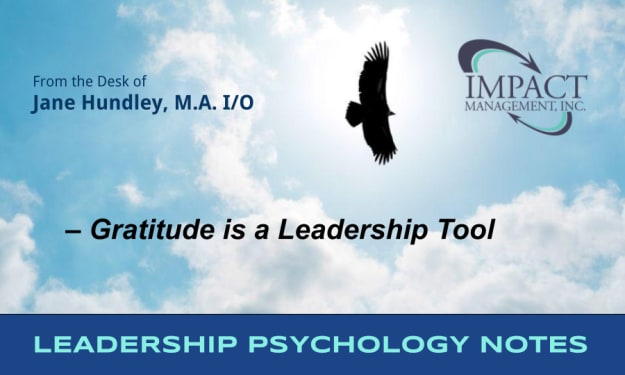To Question or Not to Question
Below are three important factors listed that can greatly influence the outcome of your questioning.

There is no doubt that asking questions is one of the main power tools used by good leaders.
Good leaders have a habit of spending time contemplating the best questions they need to ask to solicit accurate and clarifying answers.
One could even say the essence and primary activity of good leadership is asking questions.
The right questioning can make you reflect more genuinely. The right kind of questions at the right timing can be an enormous boost forward and leap ahead in understanding.
Often the best opportunities for asking questions arrive spontaneously within an unpredicted opportunity. Many times a leader will have more success when asking questions spontaneously by seizing the moment. This works for some more than others though, and that is due to some very important factors that make asking questions successful or not.
There are other factors than having the best right questions themselves that influence how well the questioning actually works. I mean, we can ask questions, or we can question people. We have all felt the difference.
Think about it. Have you ever noticed times when you feel inclined to answer questions and at other times you feel resistant and evade it? You might be clear and direct with your answers, or indirect and evasive, forthcoming or withholding in part due to other elements and information at play. Perhaps you know why at the time, but most people make these decisions quite unconsciously because much of this extra information lies under the radar – but it is detected by the unconscious and can influence outcomes.
Below are three important factors listed that can greatly influence the outcome of your questioning. Though these factors are written about before, they are worth repeating. When you are mindful of these factors and get it right, and when they are accompanied by a very good set of questions, a person is rewarded with more depth of understanding and gains by new thinking.
Factor 1 – Purpose: Your Why
You might be just jostling around with sparring questions as a game for the play of it. However, most people take being questioned very seriously, and can be evasive, resistant, even antagonistic when they don’t understand the reasons behind the questions.
We often do not like to answer questions unless we understand the basis for it from the questioner.
It’s important to remove any threat from the situation. The person is asking themselves or being asked questions need to have an understanding why they are engaging in the questions and dialogue.
For instance, when a real or perceived authority asks questions of a peer, boss, or direct report, they may or may not have established a clear intent behind their request. This is especially important when there is confusion how managers evaluate the performance of others. The person rated and questioned needs to understand the level of depth, purpose, and intent of outcomes. They also need to give you, if not a formal, informal permission.
During my coaching programs participants think, “I am going to dive into deep questioning process for a specific purpose that will reveal answers that will move me significantly forward toward reaching my goals.” And then it works.
It is a courtesy to offer people a sounding board and for a team it can be helpful to adopt a common practice of questioning that spurs team coherence. Even under clear circumstances, people are confused when they do not understand a questioner’s process of questioning itself. If someone is thinking way too hard about why you are asking your question, then she/he is not prepared for it. Offer up your intent and purpose.
Factor 2 – Presence: Your How
It is important to get the right words in your question, the right syntax of course. But the presenter needs to be engaged in a certain way.
The presence of the person who is asking is very important. The effect on the questioner will, in part, be determined by the presence of the questioner. Your body language, tone of voice, facial expression, intonations of words, pacing, rhythm, eye contact, movement, space between you, and sense of connection are all going to greatly affect the outcomes of your questioning.
Questions delivered in the right tone and timing often are not even registered as a question—it’s just communication. We want to be sure that we have our own hearts and mindset in an objective enough place as to naturally influence the genuine nature and transparent simplicity inherent in successful questioning. The person you question needs to feel you genuinely care for them, and also care about their answers enough to hold it in confidence.
Communication is as much about attitude as words. When we ask our favorite questions, we are usually entrusted with clear curiosity, intent and good will – so the person being questioned senses it by your presence and makes it easier to think, follow, and lead.
Factor 3 – Timing: Your When and Where
Timing and environment are important. When and where you ask the questions can be very important even if you get the how and why right. In friendship, one is usually mindful of these ‘rules’ and naturally follow them – with some mistakes crossing the line now and then. An important part of successful questioning is to know when NOT to ask.
Try to ask questions at a time of day when others are more likely rested or more naturally awake. Really personally significant items to the person, such as performance review or personal life questions need to be done in different formats. Important questions need be done in-person, followed by video conference, phone, email and finally, text.
Your amount of personal presence contact time will determine the where, when, and level of depth you can achieve.
As a coach at Impact Management Inc., I use my own set of power questions. My clients agree to an inquiry conducted in a specific way to reveal individualized core strengths and weaknesses of self. Some clients make leaps of understanding and accelerate gains in self-awareness – and they bring that insight to their work life immediately the very next day.
What I wish to emphasize here is a key condition: The person who is being questioned is well prepared for it.
Oftentimes, Leaders can get a lot of ideas about questioning from working with coaches.
A good set of questions can solicit so much thinking on the part of those being questioned, that the conditions for it need to be laid out—either formally or informally. The person being asked needs to have some idea that, right now – in this moment – they are communicating on a different level of listening.
Remember, before you start leading with questions, ask yourself the following questions first:
Do you have a good question to ask? Is it a good time to ask it? Are you in a appropriate setting to ask? How is your own demeanor concerning the topic of your questioning? Do you expect you will solicit an authentic response?
If you genuinely take care and consider these questions first, you can reliably proceed without hesitation, and your colleague will appreciate your earnest regard.
Jane Hundley, M.A. Industrial Organizational Psychologist, Executive Coach and Leadership Development Facilitator at Impact Management Inc. Book a call with Jane for a complimentary Discovery/Strategy Session: calendly.com/janehundleyhighimpactcoach/30-minute-discovery-breakthrough-strategy-call?month=2022-02
About the Creator
Jane Hundley, MA I/O
LEADERSHIP PSYCHOLOGIST & EXECUTIVE COACH.
Jane is the author of The Power of Executive Personal Presence® and the founder of www.ImpactManagementUSA.com.






Comments
There are no comments for this story
Be the first to respond and start the conversation.